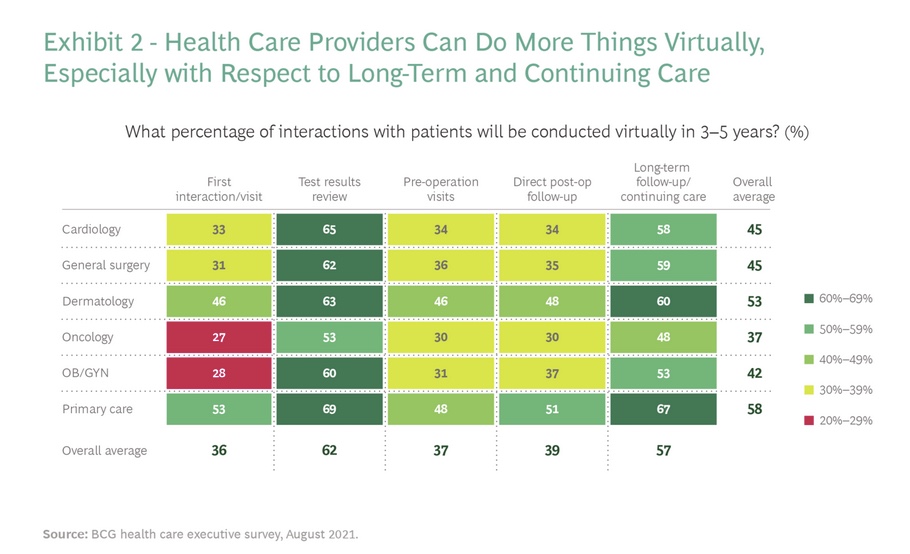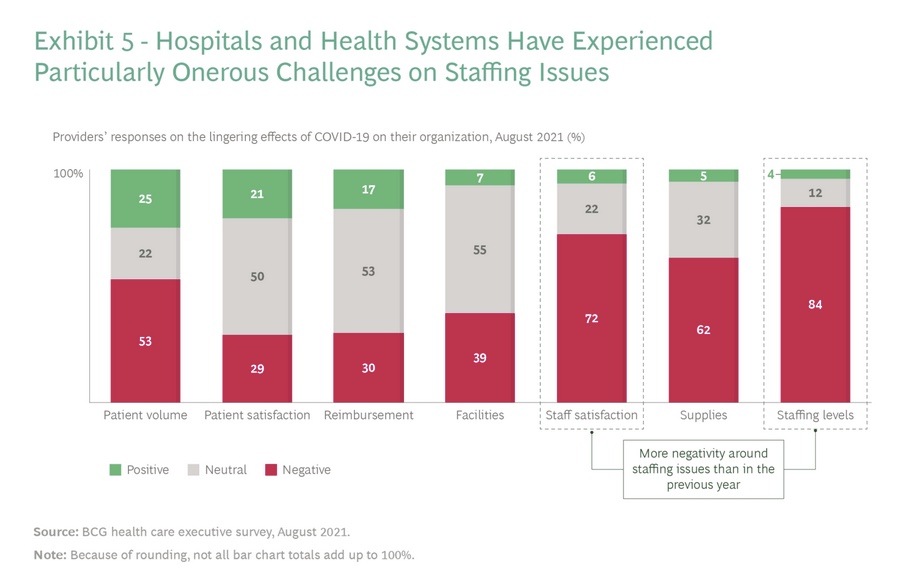
A new report from Boston Consulting Group (BCG) identified five key challenges facing healthcare companies in the immediate future and states companies need to adjust to the increasingly digital and changing landscape if they wish to survive.
With Covid-19 irrevocably altering how companies do business, many face hurdles moving forward. As the report so aptly stated, “Covid-19 delivered decades of change in a year and a half.” Further, the report advises against companies attempting to revert to “business as usual” in the pre-pandemic sense. Rather, the report encourages companies to take dynamic, digital, and decisive steps towards a new normal.

With the Rise of AI, What IP Disputes in Healthcare Are Likely to Emerge?
Munck Wilson Mandala Partner Greg Howison shared his perspective on some of the legal ramifications around AI, IP, connected devices and the data they generate, in response to emailed questions.
1. Digital engagement essential, not optional
The report found that telehealth engagement is 11 times higher than prior to the pandemic, even though that number fell slightly from the peak in 2020. Notably over 60% of primary care will occur via telehealth. Further, the report indicated providers who do not offer virtual options will lose patients. To adapt, providers will need to consider an array of issues: flexible scheduling, new work models, improved patient access, and maintain outcome quality, among other shifts. [Click image to enlarge.]
2. In-home and community care over hospital care
A majority, 60%, of patients indicated a preference to move towards at home or community care and away from hospital or hospital-related settings for care, the report found. Additionally, an increase in remote patient monitoring as well as an increase in virtual care enabled such a shift. Growth in telehealth also contributed to the home preference.
However, this change comes with challenges. Specifically biotech and pharma will need to consider the shifting application setting of their devices, therapies, and drugs when designing future distribution and production. The report identifies that legal, regulatory, and reimbursement frameworks need to adjust to the shift to home and community care, too.
3. Acceleration of science and technology
Following the efficacy of mRNA vaccines for Covid-19, the field will likely see a surge of such therapies and innovation moving forward, the report said. In particular, they anticipate future mRNA vaccines for other viruses as well as usage of mRNA for oncology and both chronic and acute diseases. Venture funding in this area is also fueling the growth.
4. Recruiting and retaining talent
Even before Covid-19 hit, hospitals and healthcare faced staffing issues. The report said these issues impact hospitals even more now. In practice, those shortages translate to decreased quality of care. In particular, the report noted an increase in hospital-associated infections for the first time in years.
Further, companies face the challenge of offering technology to lighten the burden when possible, such as automating data entry. [Click image to enlarge.]
Prioritizing health equity
Finally, companies need to make concerted efforts towards prioritizing health equity, the report emphasized. For example, Black people in the United States had a death rate from Covid-19 double that of Whites, according to the report. Of note, the report attributes the disparity to lack of access to testing as well as greater risk exposure. They note this points to a larger issue of underserved communities not having access to new therapies.
Moving forward, companies face the challenge of reaching vulnerable populations, the report notes. As well, healthcare companies need to consider how various demographics will utilize their products and make sure their products serve all affected demographics.
Ultimately, healthcare companies need to address these shifts and adapt, especially digitally, or risk their bottom line. As such, the report recommends companies actively address these challenges head on and implement changes from operations to supply chain to customer engagement. Failure to change will cost them and their patients.
Photo: wenmei Zhou, Getty Images
















